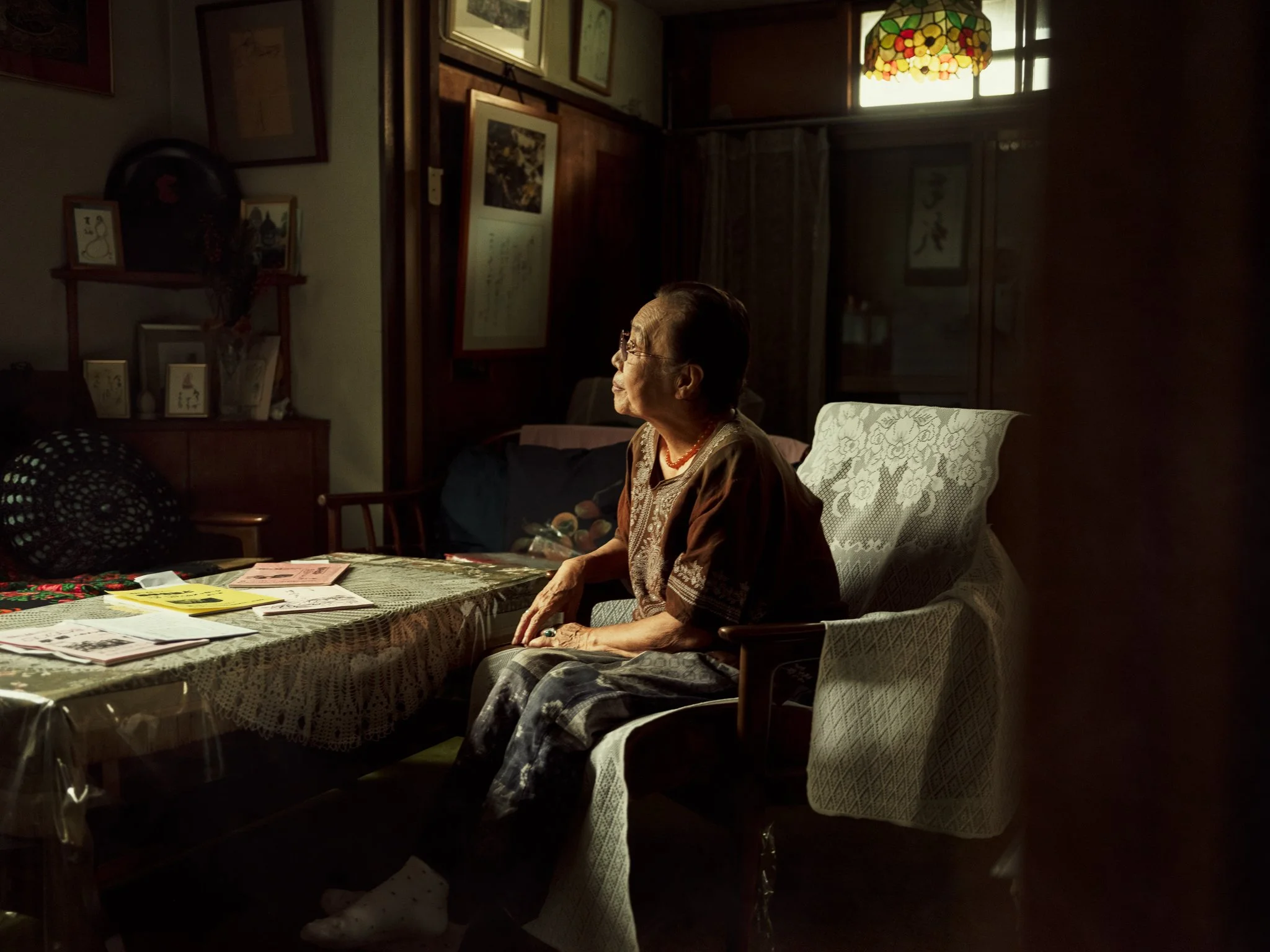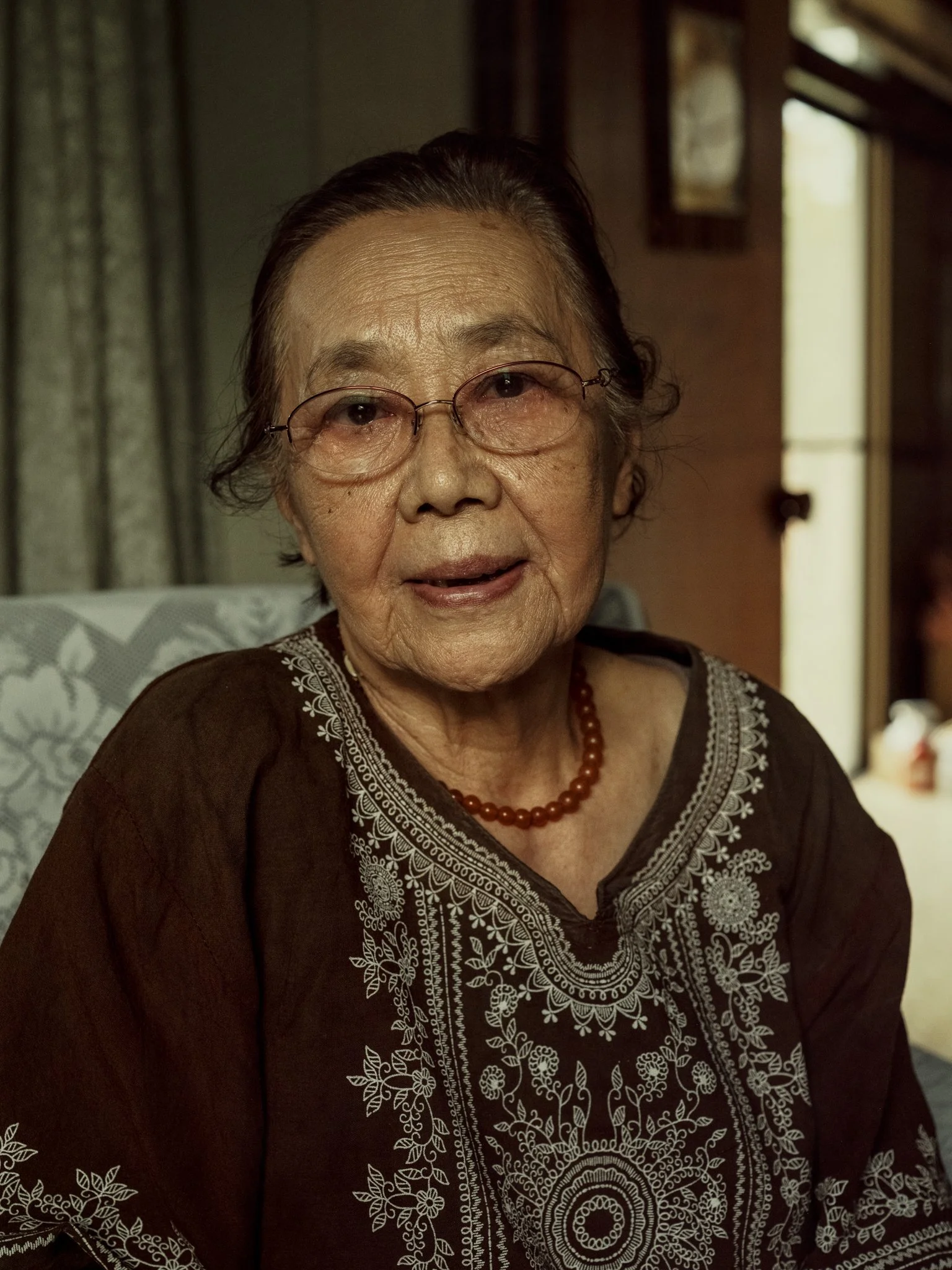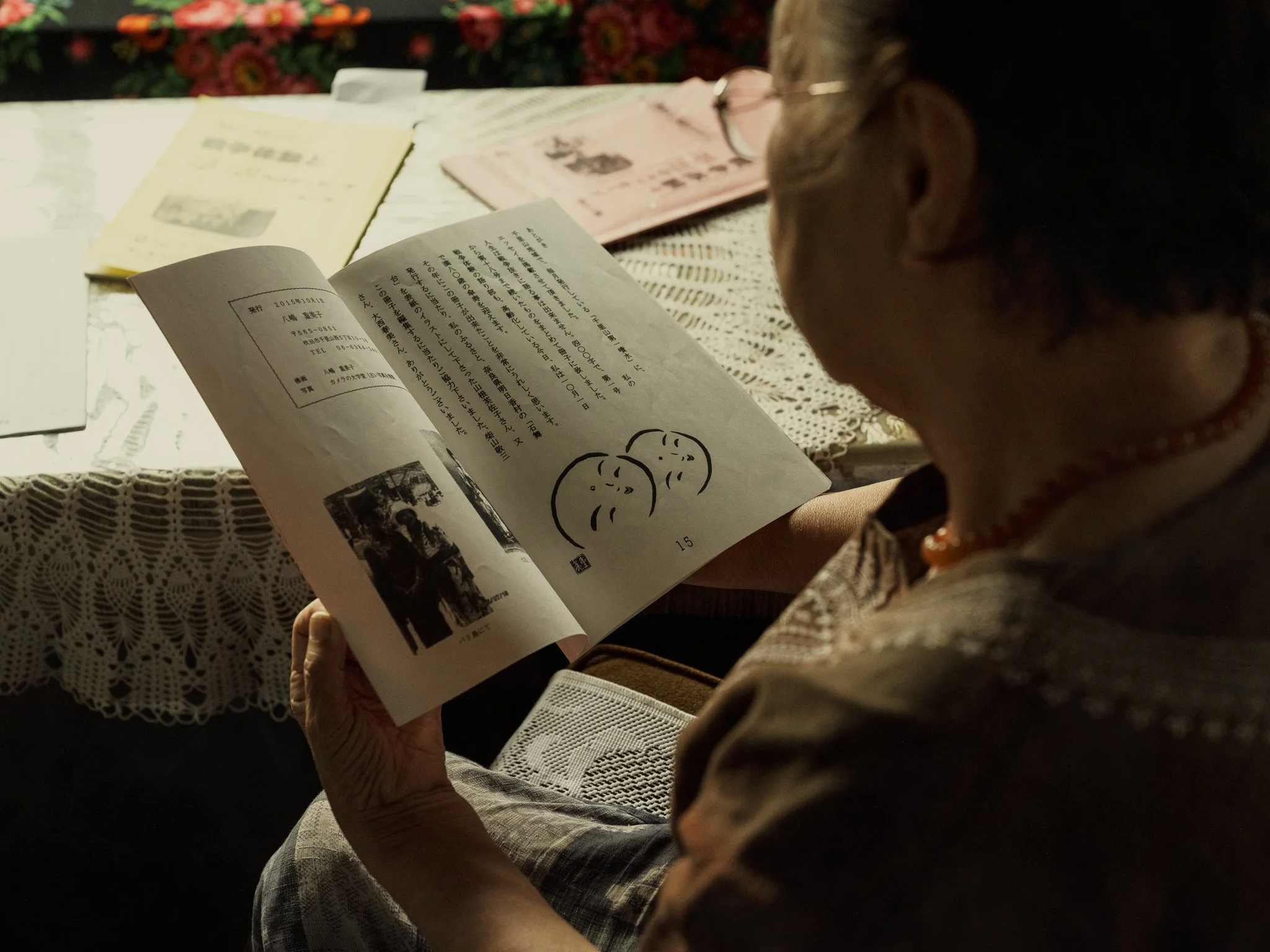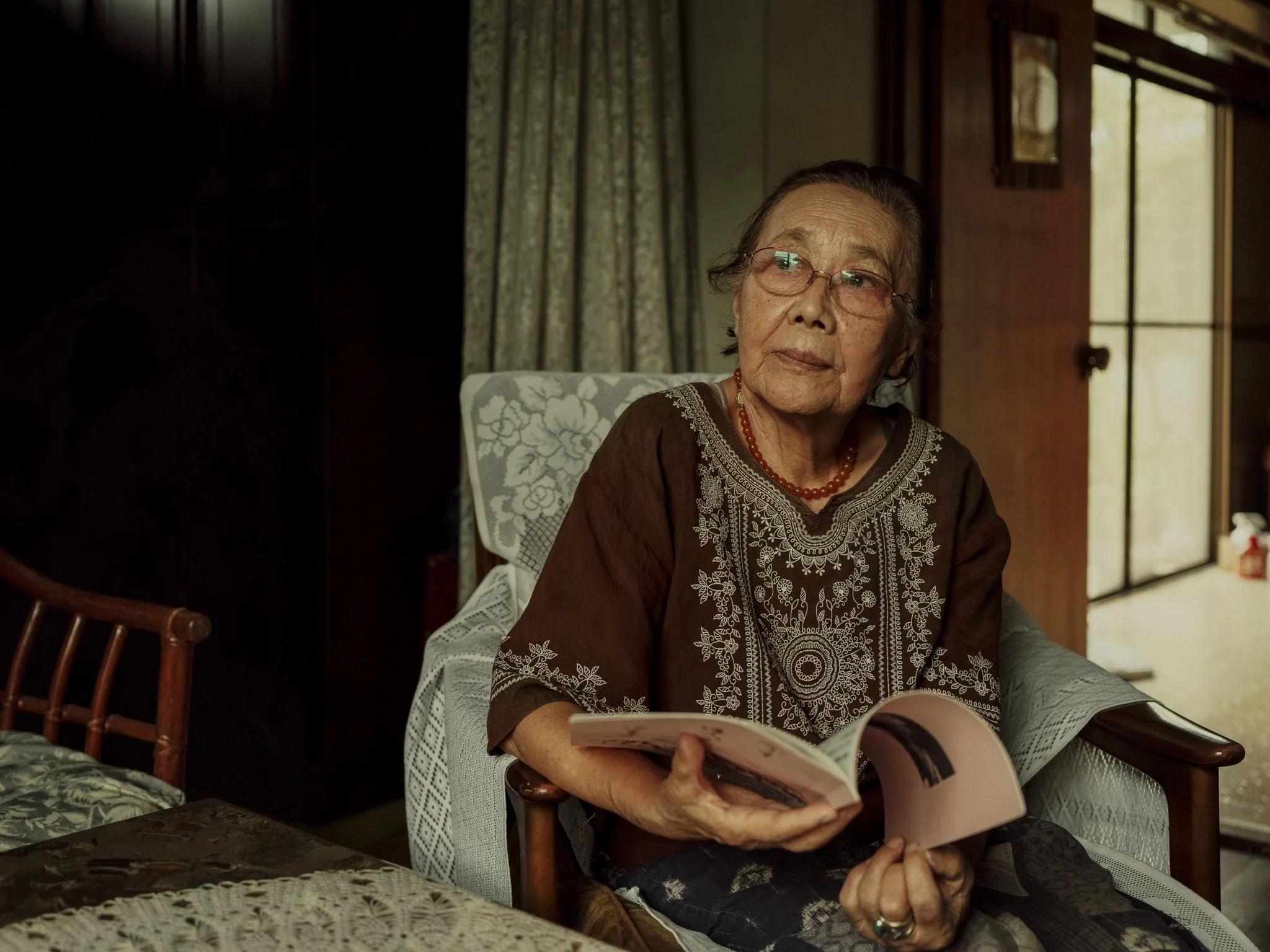Beyond War - Yashima San
Below is my interview with Mrs. Yashima. My goal for this entire project is to hear about each subjects’ experience. This is what everyday children went through during a war. War is often thought of as country vs. country. This might be accurate for people who decide on their own to go into a war, however, the cost for everyday people who happened to be born in a country that experiences a war is immeasurable. The people I interviewed, who were children during World War II, all talked about the mistake of starting a war. As this generation ages and passes away, I wanted to share their stories, not to change anyone’s mind, but in hopes that their experiences will give all of us one more piece of information to consider as we make decisions about peace in the future.
Interview
I moved from Osaka to Nara in the 2nd grade. I saw kids evacuated from the city area (they were heavily attacked) to then be treated poorly by local people in the countryside. Since I had relatives there and had been visiting there since I was born, I was able to integrate into the area without being treated poorly.
My uncle was in the war; he came home every now and then and gathered local people to talk about his experience. During and after the war, everyone was taught that Japanese soldiers all died proudly saying, "Long live the emperor!" However, in reality, soldiers lay on the ground, unable to move, trying to eat the weeds around them. He remembers that there were no weeds around each body. Everybody died calling their mother's, their wife's, and their family's names.
My father was a mechanic, so he didn't need to enter a war zone. However, he had to wave to young men flying off from their base with no fuel to come back. It must have been very emotionally devastating for him. Almost all those airplanes were shot down before they got anywhere close to an American base.
There were times when I would see so many airplanes flying right above me. All us kids were told not to wear anything white so we could hide from US airplanes. Due to the lack of weapons and resources, we were taught to throw rocks at the soldiers' groins, even as kids, which made me worried that the war was not going well for Japan.
During this time, money didn't mean much. Having nice outfits and food was essential for barter. Luckily, my grandpa was a farmer, and because of that, we could grow rice. Many people came from 40 minutes away to trade for some rice. When they could trade, our customers were so happy that they could finally feed a little bit of rice to their family. However, on the way back, most people were stopped by local police officers, and their rice was taken from them. When my family had to transport rice somewhere, we would put it in my baby brother’s wrap to hide it from the local police and authorities. I remember my brother's cold feet when we got to our destinations due to the rice not changing temperature. I realized that the police were not there to protect the citizens anymore.
Unlike my country farming family, my husband's family lived in the city of Osaka. They couldn't get food, and there were no weeds they could gather. Being a big brother to three boys, my husband was hungry all the time. They would draw rice in their bowl to pretend they were eating something.
After a few years, the emperor's voice was on the radio. The adults around us were so happy to hear the war had finally ended. I thought she could finally eat food openly with my family, rather than hiding away, and I was so pleased.
During the war, we were educated to trust the Japanese government. It is an honor to die for our country. We don't give up. We don't wish for anything until we win. One hundred million people with one soul. I think these thoughts and education made good people act ruthlessly during the war.
After the war ended, American soldiers started to come to Japan. Japanese citizens were taught that they were ruthless monsters and that they would grab women and kill them while torturing them. When we finally met American soldiers, our perspective changed. Americans treated us much better than the Japanese government and soldiers treated us. War makes people not people. Education changes the way people think and how we view the world




